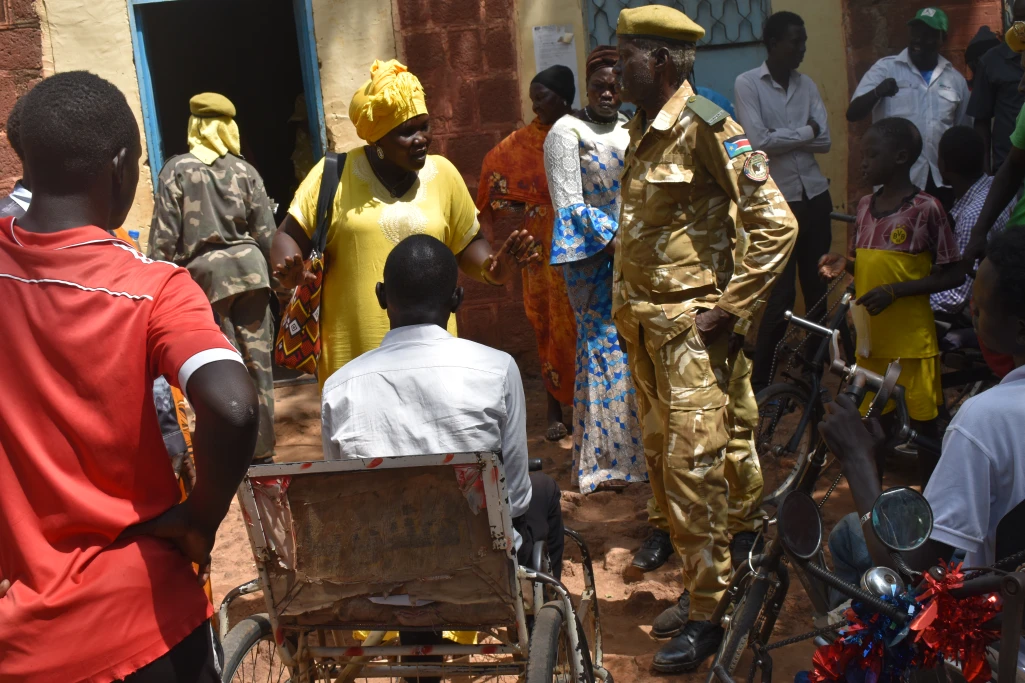
At Least five hundred registered people with disabilities in Northern Bahr Ghazal state are in Lock-head with ministry of gender, child and social welfare after they reject an attempt to formed the union’s leadership.
Over the past month, people with disabilities have been having disagreement with ministry on the process to establish the new union after they dissolved old one.
The decision announced by the ministry was rejected by the group saying they don’t want interim committee to lead them. They call on the government to allow them conduct their own elections without its influence.
Some of the group who spoke to Akol Yam FM in Aweil expressed mixed reactions over the differences with ministry saying right procedures are not being followed.
“We refused the committee because the government failed to formed it immediately after the association was dissolves that day, the right procedure was to formed a steering committee immediately and it is the one to deal with everything to elect the new leadership.”
Other say they don’t want the nominated members because it sound like power sharing and violate the constitution that says peoples should go for election and voted the right leaders into office.
However, the ministry of gender, child & social welfare says they received the information from the group on the rejection of their committee.
The director general at the ministry Mary Arkangelo Bak says the decision to formed a committee was to help address the misunderstanding between the union and the ministry.
She says she is planning to meet with the group so that she listen to their concerns that made them reject the committee established by the ministry.
“The divided themselves into two groups, one group accepted the steering committee but the second group led by former leader of the union said they rejected this steering committee”.
The union for the people of disabilities is a body that coordinates its activities and engages with partners in the state.